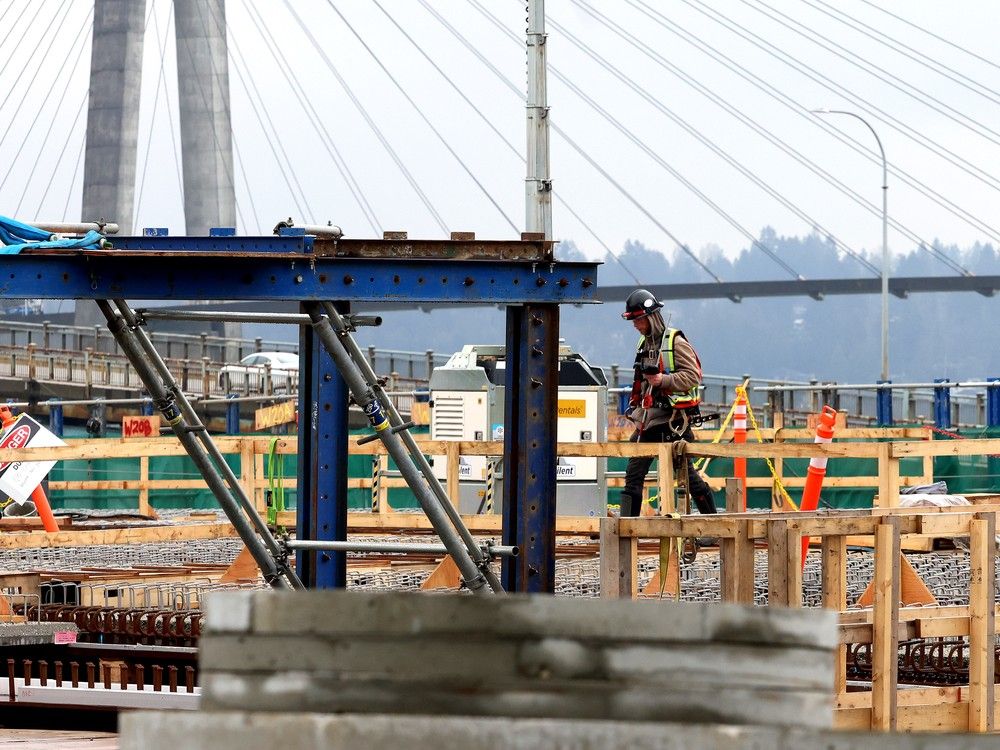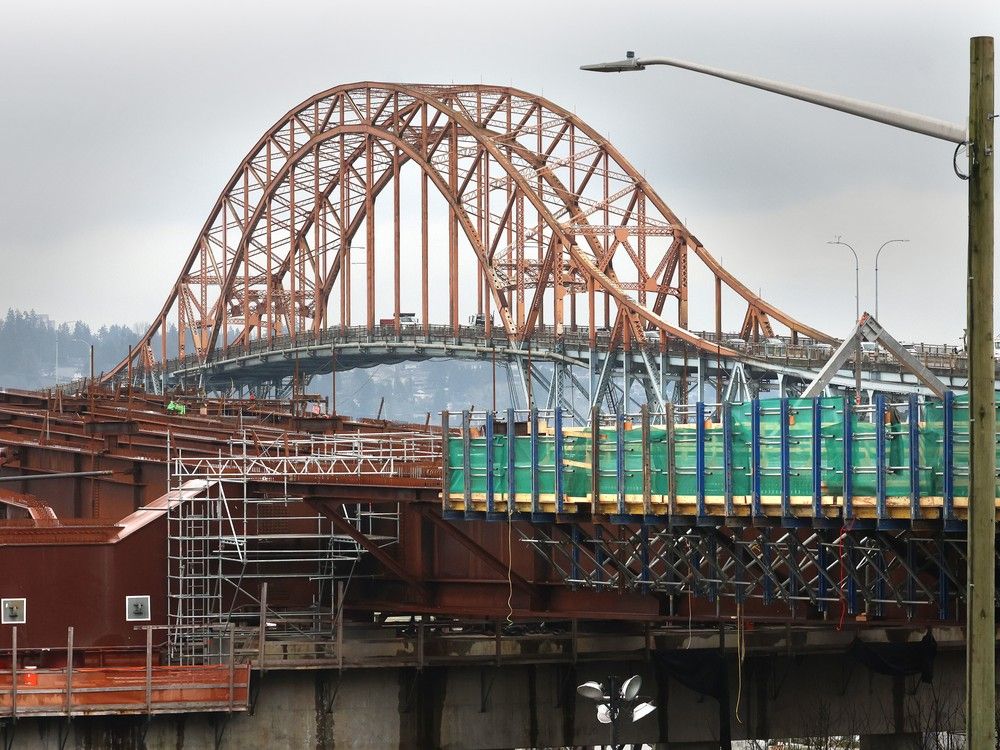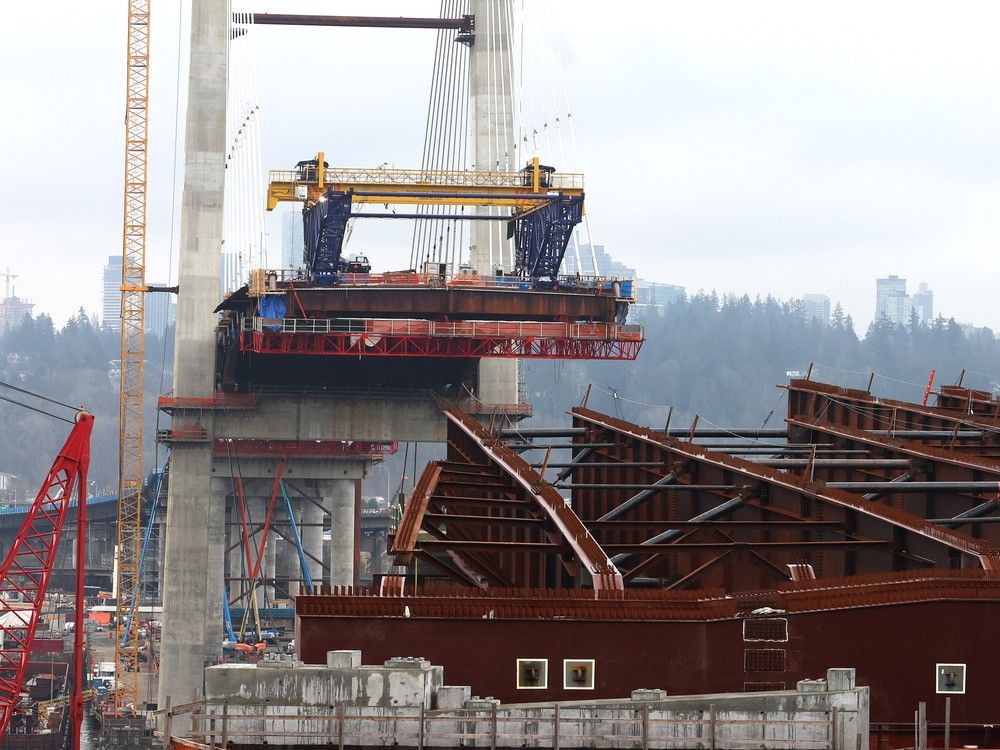
A construction industry advocacy group says delays to the Pattullo Bridge replacement project can be blamed, in part, on the province’s reliance on Chinese steel.
Originally set to be finished by the fall of 2023, the project is not expected to be completed until this fall, two years behind schedule. Additionally, the cost has ballooned by 20 per cent to $1.637 billion from the original estimate of $1.377 billion.
In a presentation to the province’s select standing committee on finance and government services this week, Keanin Loomis, the CEO of the Canadian Institute of Steel Construction, told MLAs that some of the issues with the Pattullo replacement can be put down to the general contractor for the project sourcing steel and fabrication services from China.
Loomis said the winning bid back in 2020 from Spanish multinational conglomerate Acciona and Canadian firm Aecon came in $20 million below the estimate put forward by the next lowest bid, led by Canadian company Supreme Steel. He said the steel used in the project was prefabricated in China, and when it was brought over to Canada there were issues in the welding, leading to delays and increased expenses as on-site workers had to fix the mistakes.
“The Pattullo Bridge is one of the prime examples across the country of what not to do when it comes to procurement of steel and going overseas,” said Loomis. “My members are now fixing a lot of the mistakes. If you had gone with a Canadian fabricator, I’m sure that there would be cars driving on that bridge right now.”

In fact, Supreme Steel has now closed much of its operations in B.C. It had bought the long-time construction giant Canron in the late 1990s, which was responsible for projects such as the Alex Fraser Bridge and Canada Place, but ultimately chose to wind down the company’s facilities and consolidate jobs into its Alberta and Saskatchewan offices.
A couple of decades ago, Supreme Steel had at least 250 employees as well as another 50 or 60 field employees. By the time operations were wrapped up, it had only a fraction of that many workers due to repeatedly losing out on bids for major projects such as the Johnson Street Bridge in Victoria and the Golden Ears Bridge in Maple Ridge to overseas companies.
The fall of Canron is a story of the B.C. metal fabrication sector writ large, says Loomis, who says it costs too much for many companies to continue employing people in the province, especially when they continuously lose out on bids to foreign competitors.
“It’s difficult to get fuel across the Rockies, and the cost of land in B.C. is also a huge part of the calculus, not just on wages,” he told Postmedia.
“If you’re sitting on a couple of acres in the Lower Mainland and you’re looking at all these jobs going to overseas fabricators, you’re wondering if you can actually continue to exist. And in fact, many have pulled out.”
Loomis said that while a good portion of the steel coming from China is high quality, some of it is what he calls “Temu steel” — as it is mass-produced and low-quality, much like some products often available through the popular online retailer, Temu.

The Pattullo Bridge replacement is the latest in a long line of provincial infrastructure projects coming in late and over budget. Earlier this month, provincial Transportation Minister Mike Farnworth admitted the Broadway Subway project, which is already two years behind schedule, will also cost almost $1 billion more than originally anticipated.
Farnworth was unavailable to discuss the comments made by Loomis this week and his ministry did not respond in time to questions posed by Postmedia about the use of Chinese steel for the Pattullo Bridge replacement project and the closure of Supreme Steel’s B.C. operations.
Conservative MLA Elenore Sturko, who sits on the select standing committee on finance and government services, said she was shocked to hear about the issues with the Pattullo project, and drew it back to the recent controversy around B.C. Ferries’ awarding a contract for four new vessels from a Chinese state-owned shipyard.
“You have to wonder what the true value in choosing overseas steel producers and providers versus the home-grown and home-produced steel that can be manufactured in Canada,” she said.
“It might look cheaper at the outset, but if we’re ending up with delays and cost overruns because things like welds need to be redone by a Canadian contractor, if there really is no savings in the first place, we would have been much better off, even with a bid that would have been perhaps higher than what the Chinese company was bidding given the value in keeping jobs in B.C.”